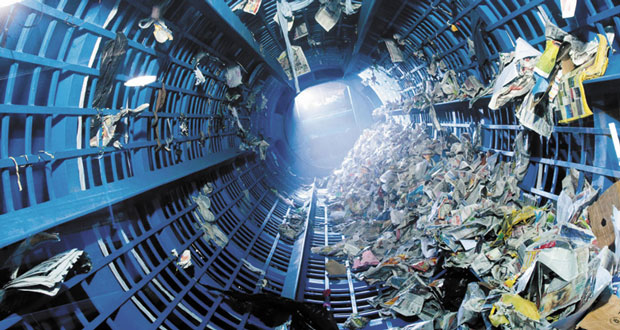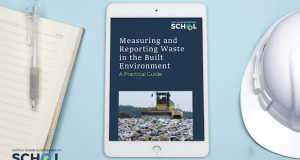Some of the key findings of the third major survey into waste management and recycling by FMJ and Grundon Waste Management were presented to a panel of senior FMs who briefed us on how they are dealing with waste management during the pandemic
The third waste and recycling survey once again showed that waste management and recycling is the most important consideration for FMs, ahead of energy consumption and the working environment. Encouragingly, while it is seen as a challenge for almost 40 per cent of respondents, more than half (51 per cent) saw it as an opportunity.
Of the multiple environmental and sustainability responsibilities facilities professionals are responsible for, which do you think are the most important?
|
Waste management and recycling |
30.60% |
|
Energy consumption / management |
28.88% |
|
The working environment |
15.09% |
|
Carbon footprint management |
13.79% |
|
Pollution |
2.59% |
|
Other |
3.88% |
Commented Anthony Foxlee-Brown, Grundon’s Head of Marketing and Communications: “For a waste management company like Grundon this is a great thing to hear as it’s somewhere we feel we can add value, and it’s encouraging to know it’s something that FMs feel passionate about as well.”
As with every facet of life in 2020, however, the panel revealed that many of their targets had “gone out the window” due to the effects of lockdown, and with their organisations operating on a model where “health trumps sustainability” how could this effect recycling levels? This is an important point because the engagement of stakeholders, whether senior management or staff is crucial in ensuring healthy recycling rates.
For the third year running, the inability to engage staff was seen as the biggest barrier to improving waste and recycling performance, while implementing an employee education and engagement programme was viewed as the most helpful way to support waste management strategies.
What are the biggest barriers to improving waste and recycling performance in your organisation?
|
Inability to engage staff with the need to recycle ie: lack of education |
38.39% |
|
Physical restrictions, ie: lack of space for bins, compactors, etc |
24.17% |
|
Lack of resources ie: budget, staff |
16.11% |
|
Lack of senior management support/understanding of waste management issues |
9.95% |
|
Lack of time |
5.69% |
|
Perceived additional cost |
5.69% |
When we asked our panel, why is engaging staff still seen as such an obstacle, it was suggested that both a lack of trust in what happens to recycled material and a lack of accountability are issues: “There is a perception that the recycled material isn’t being processed the way it was meant, so it’s partly the expectation of what happens to it, and partly people just being lax and deciding to chuck things in the bin while they’re at work.”
The panel also agreed that while younger people want to be aligned with a firm with a good waste and recycling record, it’s not always seen as business-critical for senior management. While it is clear that “we’ve got to make [recycling] simple and easy so people will participate, the implementation of social distancing will also have indirect effects on behaviours in the office, for instance if one-way systems and other ‘barriers’ are introduced”.
What would help you to promote waste management in your organisation?
|
Employee education and engagement programme |
37.44% |
|
Better understanding of the benefits to your business |
12.32% |
|
Regular reports showing recycling success stories within your business |
11.37% |
|
Tips and advice, ie: how to set up a Green Team or Waste Champions |
9.48% |
|
Greater understanding of different types of waste and how to segregate them |
9.48% |
|
Evidence that improved segregation and recycling can save money |
9.48% |
|
A dedicated account manager who understands your waste management challenges |
7.58% |
|
Visits to a recycling facility |
2.84% |





